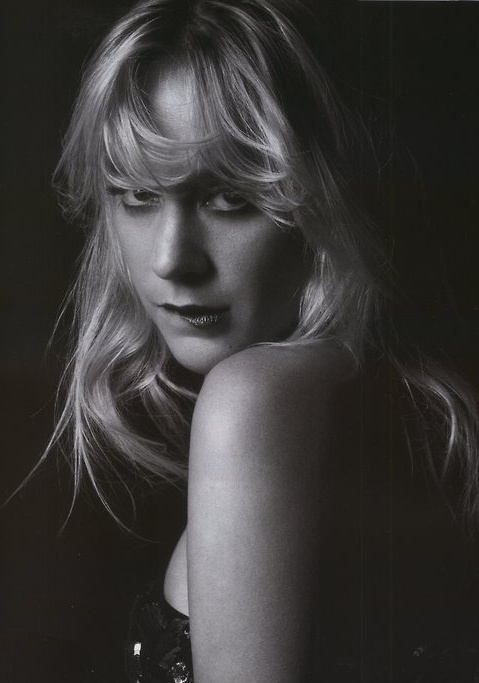最后的迪斯科 The Last Days of Disco(1998)

又名: 迪斯可末日 / 迪斯科时代
导演: 惠特·斯蒂尔曼
编剧: 惠特·斯蒂尔曼
主演: 科洛·塞维尼 凯特·贝金赛尔 克里斯·埃吉曼 麦肯齐·阿斯丁 马特·基斯拉 罗伯特·肖恩·莱纳德 詹妮弗·比尔斯 马特·罗斯 塔拉·苏博科夫 布尔·斯蒂尔斯 大卫·桑顿 Jaid Barrymore Sonsee Neu 爱德华多·巴莱里尼 斯科特·比纳 迈克尔·韦瑟利 詹姆斯·墨塔夫 凯思琳·查尔方特 卡罗琳·法里纳 泰勒·尼科斯 布赖恩·莱德 迪伦·亨德利 马克·麦金尼 阿杰·梅赫塔 乔治·普林普顿 Isabelle Townsend Michael Albanese Will Kempe 杰西卡·皮蒙特尔 Rio Puertollano 尼克·斯特拉特
制片国家/地区: 美国
上映日期: 1998-05-29
片长: 113 分钟 IMDb: tt0120728 豆瓣评分:7.2 下载地址:迅雷下载
简介:
- 斯蒂尔曼自编自导的风尚喜剧。亦是其“都会三部曲”的完结篇。讲述出浴迪斯科热潮末期的两个女人在俱乐部里寻找爱情的故事。主演是电影圈的时尚达人Chloe Sevigny。
演员:
影评:
- 这里很棒,是我一直以来的梦想,鸡尾酒、跳舞、聊天……交换看法与观点。大家都在这儿,你认识的和不认识的。你应该感到骄傲,这是一个了不起的成就。
这部影片相较《大都市人》更现实,怎么看的影片和当代国内年轻人状态那么相近。虽然还是在那个小圈子、还是男欢女爱那点东西,甚至还有点人物延续。
同样每个人都操着哲学家社会学家人类学家的口气,都说不上多讨人喜欢,但多少却有点可爱,虽然影片关于某个时代的终结,但其中的人物总能找到不会过时的真实。
最后的迪斯科倒是和最近的影片《待解救的少女》结尾挺合。 (简单写些东西,有机会再来整理)
Disco来自法语discothèque,图书馆和光碟合并而成,字面意思光碟收藏或者光碟的殿,强调空间的性质一目了然。另外,迪斯科作为舞曲,主要是配合跳舞这个动作,也暗示了其空间属性,你不可能像60年代的摇滚音乐节一样再去露天了。
再来聊聊迪斯科的其它属性,我没有专门学过音乐,这些是看书所得,仍然待求证。迪斯科每分钟120个鼓点,并循环往复,没有停顿。这样的属性适合逃避,遁世,仿佛在节奏里可以一直快乐下去。另外就是DJ的伟大发明:不断混合音乐,以及节奏,刺激着享受迪斯科的人们。这里就和电影接上了,电影中的男男女女生活的结构就如DJ手中的迪斯科一样,爱情友情相互配对,片中也出现了pair off的讨论。
迪斯科的兴起是60年代各种解放运动的余温,迪斯科构成的空间,各种club,从Andy Warhol的Factory,Studio 54 到Club Kids将disco文化带入汉堡店/废旧车间,从隐秘到公开,从匿名到压倒一切的出名,从地下文化变成流行文化,迪斯科是革命的。迪斯科文化是对主流文化的反叛,是对白人/异性恋/男性主导的社会的挑战 ,年轻人寻求身份认同,逃离压迫的LGBT,追求独立的有色人种和女性在这里大放异彩,用音乐和服装语言表达自我。电影对此也是认同并且展示给观者,为什么角色们爱迪斯科,人性里面总有地方被迪斯科吸引,在迪斯科获得认同/爱情,展示个性和独立。
但是迪斯科成为主流文化之后,那么它的没落也来临了。我认为的原因有,大众消费音乐的方式变了,音乐从伴舞,变成的主菜,Music Video的兴起极大改变了迪斯科,我们用视觉去享受音乐,而不是用身体去展示节奏了,电影中Charlotte不断说自己是要去电视行业,就在暗示。另外,性病和毒品埋葬了伟大的迪斯科,在逃避者中,毒品的出现加强的遁世和享乐,也让人更无所忌惮,各种STI的泛滥,电影中提到的G和H,最致命的是AIDS的出现(有趣的是Chloe Sevigny在这部片子前几年正好扮演了无辜感染HIV的少女),保守势力的反对声音和城市的监管权力给迪斯科关了起来。导演不知道短短几年后的911,将完全封印迪斯科,恐怖分子改变了公共空间的认知,联想到今天的covid19,之后的公共空间研究会更有趣,这些都是题外话了。还有一点,在迪斯科中,空间的二元对立(主要是公共与私隐)消解了,两位女主角因为经济原因住在同一屋檐下,因为空间共享,产生了矛盾,但是到了迪斯科的空间,一方面她们的私人空间延展至此,另一方面,她们解决问题也在迪斯科空间,比如提出搬出去以及和解。
但是我们知道,迪斯科没有死,Josh的宣言其实也是Whit Stillman的,面对迪斯科的历史和遗产,我们还有很多故事可以去挖掘和讲述。迪斯科是伟大的,它可能是个幻境,如电影一样,但它也是真实的,如记忆,如历史。
USA conversationalist Whit Stillman’s third feature, THE LAST DAYS OF DISCO trades on his personal experiences of NYC'sdisco-scene (salted with Harvard-disparaging quips)inthe early 80s, ebulliently scrutinizing a coterie of freshly out-of-college yuppie-wannabes, who are habitually congregated in their common haunt, an unconscionably popular nightstand, meantime, their love life and career path wax and wane variably, signposted by its title when their disco days are unexpectedly being put paid to, time to grown up when reality bites.
Alice (Sevigny), a self-contained sylph dithering about making the right decisions - don’t be judgmental, be sexy, always at the bidding of her more popular but stuck-up friend Charlotte (a fresh-faced Beckinsale, looking ghastly under the slap), both girls work in the same publishing house and mingle with the likes of Tom (Leonard), a spiffy environmental lawyer, Jimmy (Astin), an enterprising adman, No.1 and No.2 prospects on Alice’s infatuation list, then there are Josh (Keeslar), a young assistant district attorney and Des (Eigeman), a college-dropout who becomes one of the managers of the said nightclub, both take a fancy on the quiet but intelligent Alice.
Gender study and sex politics are thrown into the mix where philandering and mendacity (using“gay excuse” to break off relationships), gender double standards (you are a titillating slut, I will not forfeit our chance of a one-night-stand, but afterwards, we are finished.), treacherous friendship (Beckingsale is totally in her wheelhouse as the paradigm of the so called "green tea bitch", avant la lettre), even venereal disease, collectively roil the dynamism of their pairing-off games, to somewhat wacky but consistently buoyant vibes, however, a byplay relative of an undercover police investigation is only patchily introduced as a frivolous plot device, fails to emphasize what is at stake, and the manic-depressive Josh, accorded with a forthright quirkiness and spontaneous elocution, potentially the most fascinating character among the posse, is wasted by the wooden, stilted performance from the blandly handsome Keeslar, whose recapitulation of the film’s tenor near the finish-line comes off as a deleterious overkill.
However, club-scene hasn’t died out, has been continuing luring new generations of hipsters and scenesters with theme-specific variations to this day, over three decades later, THE LAST DAYS OF DISCO is, to each their own, a sparkling eulogy of Whitman’s own youthful abandon and disillusion, and on a sociological level, a zeitgeist-reflecting conversation piece that thankfully doesn’t belie its maker's undue conceit and guile.
referential films: Stillman’s LOVE & FRIENDSHIP (2016, 7.2/10); Dylan Kidd’s ROGER DOGER (2002, 7.3/10).
- 看完这片的时间是昨晚三点半,本该按照原计划倒头就睡,但不曾想反而兴奋得在床上翻来覆去恨不能马上爬起来写影评。这样一来可就没有什么好结果,五点钟的时候迷迷糊糊、头痛欲裂地醒来,只能以老瘸子挣扎着爬向Vicodin的精神作为鼓励,抖抖索索地翻出了两片阿司匹林,再像老瘸子一样不用水就生生地吞下去。
嗯,要不怎么说,有时候看片的时候没有期待值反而是好事呢。
天地良心,我这次可还真是冲着人去看的,但是最后要看的人忽忽悠悠地打了酱油,我倒是一点都么有上当受骗的感觉。说来这片也算是怪才的作品,其编剧兼导演Whit Stillman到目前为止只拍过三部电影,而这三部电影却被堂而皇之地尊为“都市三部曲”,还出了CC的典藏版。本片作为三部曲的最后一部,拍摄于1998年。
(那么就是说,这导演已经十几年么从洞里钻出来了。这时候一股切实的担心免不了油然而生:某某某人,您现在就深居简出得让人愁肠百结,演完了House之后不会打算以他作为榜样吧!)
转回头来说片。窃以为,这片之所有有点意思,是因为所有你害怕、或者厌恶看到的cliche,最后居然都有惊无险地没有发生,这个很好,而且很不容易。一部片经典不经典也许难说,但是好看不好看可就全靠这个了。这片可以拍得很金玉其外败絮其中,但是它最后既没有流于肤浅,也并没有假装深刻;这片可以拍得很狗血,但是直到结尾我们才知道这原来并不是一部哼哼唧唧假装曲折的爱情电影;这片可以拍得很装小资装怀旧装文艺乃至装B,但是它只是像最后一班蒸汽火车一样咣当咣当地喘息着走向终点站,大家安安静静地下了车分道扬镳,一个时代结束了,但是生活依然要继续。所有的人物不光只有一张脸皮,也并不只是穿上光鲜的衣服来一个巨大的舞台上走秀,仔细想想看,你会觉得这样的人离你并非像电影和现实之间的距离一般遥远,他们说过的话、做过的事、犯过的错、爱过的人是如此似曾相识,你会觉得这有点不像是随便拍来忽悠自以为是的女青年的。
其实我对Disco时代并没有比一般人更多的了解,但是本片里对Disco时代的描述不失为一个精准、简洁而且感同身受的recap。剧本写得很好,除了上面提到的避免了人物的脸谱化和情节的格式化之外,台词也写得很不错。片中围绕一群人截取其生活片段的做法很像前一阵子看过的、Judd Apatow亲自大力推荐的Diner,虽然调调不尽相同,人家Diner的演员阵容也大大强过本片,但是对于群像的刻画基本上是成功的;剧中主角动辄引经据典、大段吐槽的架势难免让人想起Before Sunrise和Before Sunset,也许纽约的文艺青年们都这样;反正说到头来,这是一部不好归类的电影,而这不好归类也自然给观影带来了意想不到的乐趣。
RSL是通过什么样的机缘巧合跑到人家剧组里去打酱油的,这是一个不解之谜。看片之前我毫无疑问地觉得囧囧肯定要继Much Ado About Nothing之后再次和Kate Beckinsale凑一对儿,结果最终俩人在片中的对白大概不超过两句;他其实是个jerk,她根本是个bitch,他像是对Disco精神的隐喻,而她在某一方面看来则像是Disco走向灭亡的原因,说来好笑,导演有意地把这两个人之间一切可能的交集斩断,不知道是不是为了表明Disco的本源和Disco的末路本来就毫无关系。也许选囧囧来轧Tom这一角根本是刻意为之,因为他实在温文低调得不像浮华夸张的Disco,也更不像那个最后被证明是自己的道德立场疑点重重却首先指责他人没有廉耻的伪君子;导演对Disco看起来是颇有些感情的,也许他想说,Disco其实只像Tom一样是个有着几分理想、一点怪癖,也许偶尔优柔寡断但是说到底还是想遵从社会规范、成长为标准型社会栋梁的靠谱青年——或者说没谱青年。片中其实最有趣的还是对于几个女性角色的刻画,不同的背景、经历和思考方式让她们在社会生活和个人成长过程中摇摆不定、互相依赖而又互相伤害,形成了一种不同于现在已经彻底沦为陈词滥调的“BFF”式女性关系。说实话,比起一年又一年地看Sex and the City里的大妈们假惺惺地做彼此的精神支柱,我宁可看本片里的这一帮女人之间有时坦率得令人不舒服、但却是更贴近现实生活的剪不断理还乱。
(也许RSL被拉进来是单纯看他会跳Disco……?那几下屁股扭得,啧啧啧啧啧……话说这人怎么摇摆青年过后又Disco小子,您还能再Gay一点么浑身一抖……)
五颗星里的那一颗星不用说要扣在表演上。这里有必要再提到Diner,比起人家少年天才扎堆的阵容,本片单靠Kate Beckinsale一人的不错发挥领衔就显得有些单薄了;女主角Chloe Sevigny似乎没有百分之百地驾驭好Alice这一角色,再加上其他演员在片中的表现也只能说是中规中矩,这就使得本片能让人印象深刻的精彩段落太少了一点。当然咯,本来高潮和华彩就并非这一类电影所追求达到的境界,对于这种“生活一瞥”类的小品片来说,重要的依然是设计精巧的情节和人物吧。





